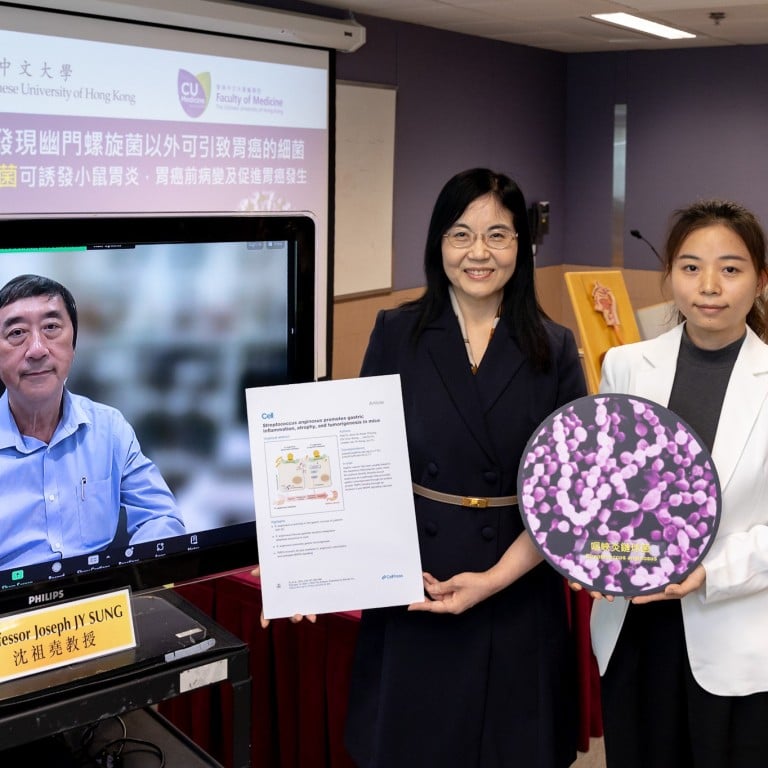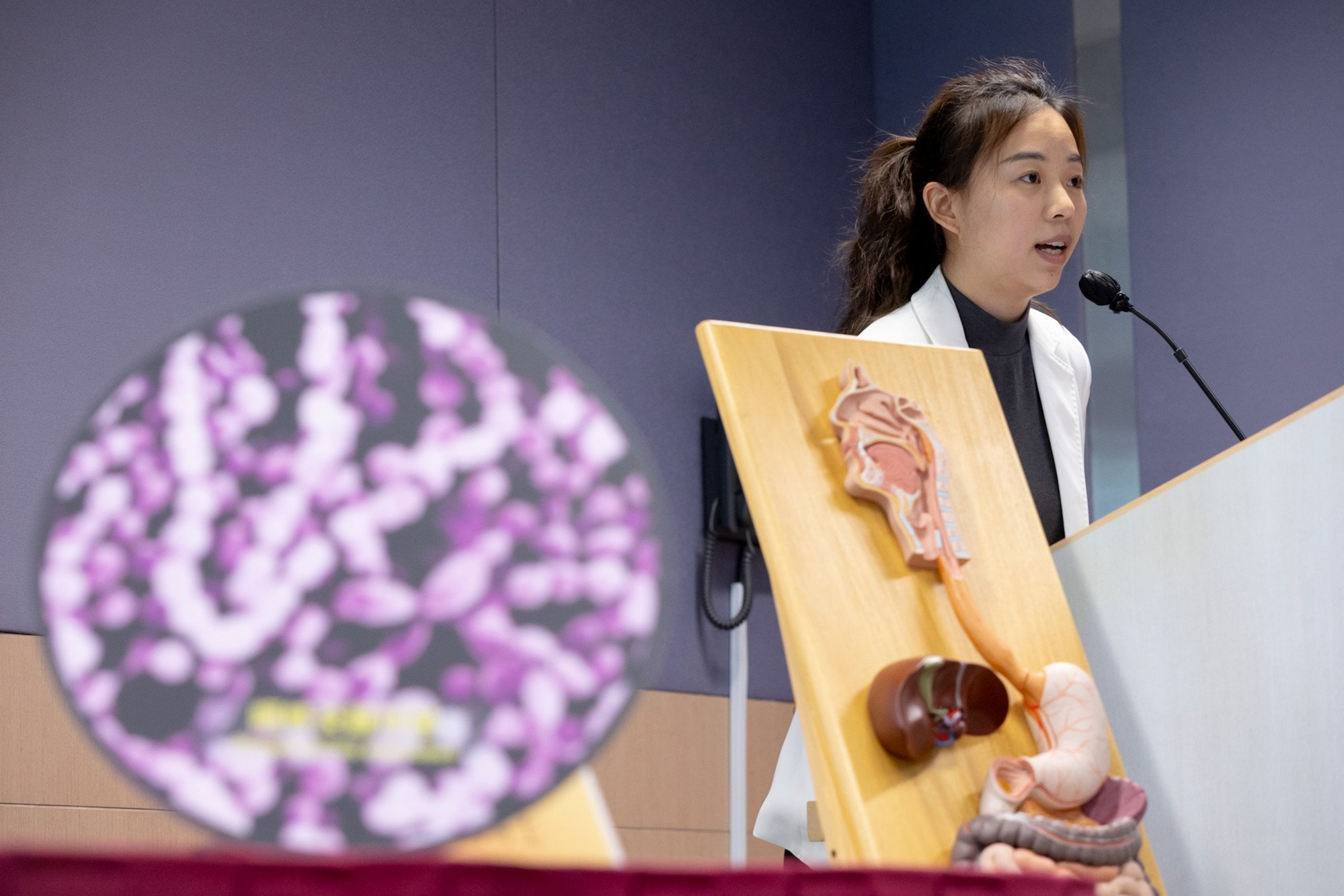
‘Significant discovery’: Hong Kong study identifies certain bacteria as risk factor for stomach cancer
- Researchers from CUHK faculty of medicine discover a certain type of bacteria is pathogen of gastric cancer, as it can kickstart tumour growth
- ‘We believe this bacteria is an accomplice, or even a fatal factor … this bacteria alone can still increase the risk of developing stomach cancer,’ expert says
A Hong Kong study has found that a certain type of bacteria is a risk factor for stomach cancer, a discovery that could shed light on possible clinical interventions in the future.
Researchers from the faculty of medicine of the Chinese University of Hong Kong (CUHK) on Wednesday said they had discovered that Streptococcus anginosus, or S. anginosus, was a pathogen of gastric cancer as it could kickstart tumour growth.
Professor Joseph Sung Jao-yiu, co-corresponding author of the study and CUHK emeritus professor of medicine, called the discovery “significant” because while previous research showed that Helicobacter pylori, or H. pylori, infection and genetics were major risk factors for gastric cancer, whether other bacteria could also lead to the disease had remained unknown.
“People with only H. pylori infection are two to three times more likely to have gastric cancer compared with those without the infection,” said Sung, who is also the senior vice-president at Nanyang Technological University in Singapore and former CUHK vice-chancellor.
“Being infected with both H. pylori and S. anginosus can further increase the risks, but since our study was conducted on mice, I cannot provide an exact figure. But based on our study, it can be estimated that the risks can increase by an additional two to three times.”

The study was published in Cell, one of the world’s top biology journals, last month, becoming the first study led by CUHK investigators to be featured.
Sung said early studies had found that even if H. pylori was removed from the patient’s stomach, gastric cancer could still emerge, prompting the researchers to turn their attention to other bacteria.
The research team discovered that S. anginosus infection can be found among 50 to 70 per cent of Chinese subjects, while the infection rate of H. pylori was about 40 per cent.
He said that due to its resilience to low pH or strongly acidic conditions, S. anginosus could still survive in patients’ stomachs even after H. pylori had disappeared.
Hong Kong experts make breakthrough discovery on child leukaemia relapse risk
“We believe this bacteria is an accomplice, or even a fatal factor because even if H. pylori is removed, this bacteria alone can still increase the risk of developing stomach cancer,” he said.
Researchers found that S. anginosus could trigger inflammation, which could lead to the formation of cancer in mouse models.
“Our investigation revealed that S. anginosus has a causal relationship with gastric cancer,” said study first author Dr Fu Kaili, who is also a PhD student and a postdoctoral fellow at CUHK’s medical school.
“We also found that S. anginosus impairs gastric barrier function and promotes cell proliferation, altering the gastric microbiome to a more favourable environment for cancer progression.”

Sung said S. anginosus could also act as a biomarker to show that the patient was at high risk of cancer or required close monitoring, which was important for early diagnosis and prevention.
He said the bacteria was often found in people’s mouth and teeth, so maintaining oral hygiene could prevent the emergence of the bacteria and gastric cancer.
“People with periodontitis or dental calculus may carry this bacteria, which may be ingested into the stomach through saliva and lead to other conditions,” he said.
Worried about irritable bowel syndrome? Hong Kong academics have 5 suggestions
“If we can pay attention to oral diseases and prevent the inflammation of our gum, periodontitis or dental calculus, we can lower the risks of gastric cancer.”
Sung added that when handling H. pylori infections in the future, doctors might also need to check whether the patient was infected with S. anginosus and treat it with antibiotics or other methods.
Professor Yu Jun, corresponding author of the study and director of CUHK’s State Key Laboratory of Digestive Disease, said researchers would explore developing treatments that targeted the bacteria to diminish the risks of gastric inflammation and cancer in the future.

